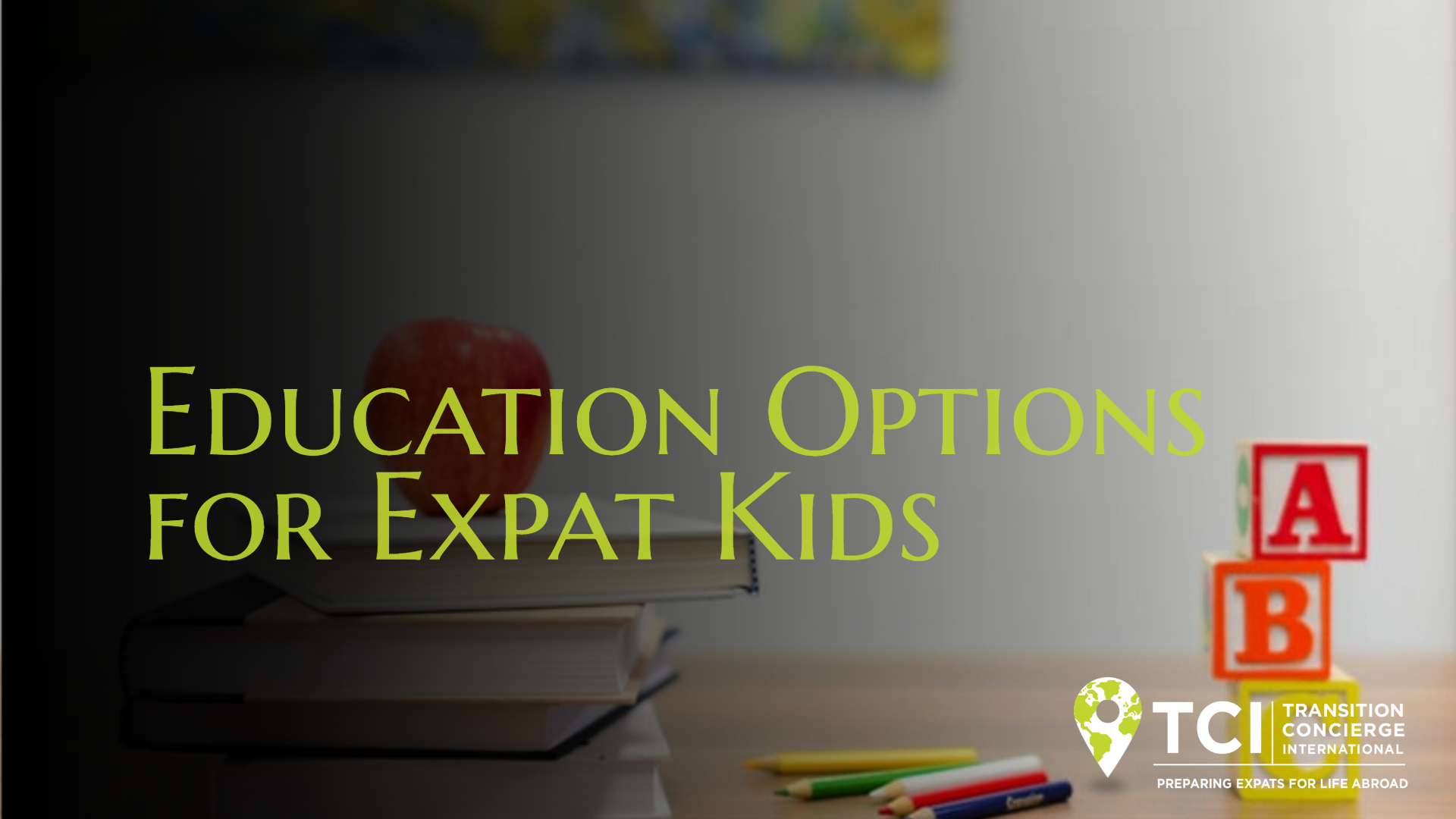Let’s begin our discussion by dispelling a few myths.
First myth: Expats are only retirees. Not so at all!! Expats run the gamut of life situations including families with kids, big and small.
Second Myth: My kids cannot get a great education while living abroad. Completely false! First, just the fact that your kids are living abroad is a unique educational experience in and of itself. Second, do you really believe that the only country in the world that educates its children well is the country you happen to live in? Of course not!
Frankly, whether it is good or bad, the issue is that we understand the school system where we live and thus know how to manage it to our children’s benefit. Concerns about schooling outside our home country are typically due to a lack of knowledge about school systems and philosophies outside of your own.

So, let’s go about the business of shining some light on education options for your kids while living abroad. These options are a function of the expat destination you choose, your personal expat philosophies about the depth and breadth of interaction with local children you want for your kids, your children’s needs –and yes, your finances.
Homeschool
Homeschooling is a popular option for expat families. It allows for flexibility in family travel and daily living. There is a myriad of different homeschooling programs, some even provided from your country of origin. Programs come in different levels of instructional rigor.
If your goal is to provide a strong instructional experience to your kids, then look for challenging programs and know that there will be a requirement of strong parental oversight to ensure your children’s success. The downside of homeschooling is obvious, it’s done at home. Not all family units are prepared to do this well.
The tendency may then be to select less rigorous programs reducing the need for parental involvement, thus shortchanging your child’s academic growth. Further, children are thus not as exposed to the local culture and local children as those who go to school would be able to do. Parents would have to make other arrangements to help socialize their children to their new country if they so desire.
International schools
International schools are schools whose focus is on students who live in foreign countries. Their curriculum is generally designed to help provide internationally-focused education and prepare students for life in their host country including possible higher education options in that country. Schools can indeed provide an easy transition to a host country for many expats as they go to school with students in the same situation. The possible downside is that interaction with local children may be limited if the expat children stay in an “expat bubble” in their new home.
You can do some research on these schools at this link: https://www.international-schools-database.com
Private schools
Private schools come in all shapes and sizes in different countries. If this is an option you want to consider, look for private schools that have programs and experience dealing with expat kids.
These institutions could provide a very effective transition process for expat kids to assimilate into a new culture and school system. It also allows for the social and emotional growth of students as they interact with local kids, not just other expat kids. The cost of private education can vary greatly by country.

Costs can vary from $100 a month per student to costs rivaling those in the United States. Do not be surprised, though, if the cost of an excellent education for your kids in a high-quality private education institution runs you between $100-$300 a month. That may seem unreal in comparison to your home country, but costs can be that low. Note also that uniforms (this is typical), books and supplies may or may not be included in the pricing.
Public schools
Public schools also come in all shapes and sizes in different countries. This option is really jumping headfirst into a new culture! Public schools are probably less likely to have many other expat kids enrolled and thus less likely to have specific programs to support expat children. That is not a hard-and-fast rule. You have to do your own due diligence to find out more about public school options and realities in your new country. Generally, you will see children required to use uniforms and pay for their own supplies.
The gist of it all
To sum things up, here’s the take away:
- You don’t have to wait for your children to graduate before you become an expat.
- Your child has many education options as an expat kid.
- Your education choices are a function of the country and city chosen as your expat destination, your personal expat philosophy, your education preferences, your child’s needs, and your finances.
Are you thinking of schooling your children abroad or are you already doing so? Please share with us your experience.


